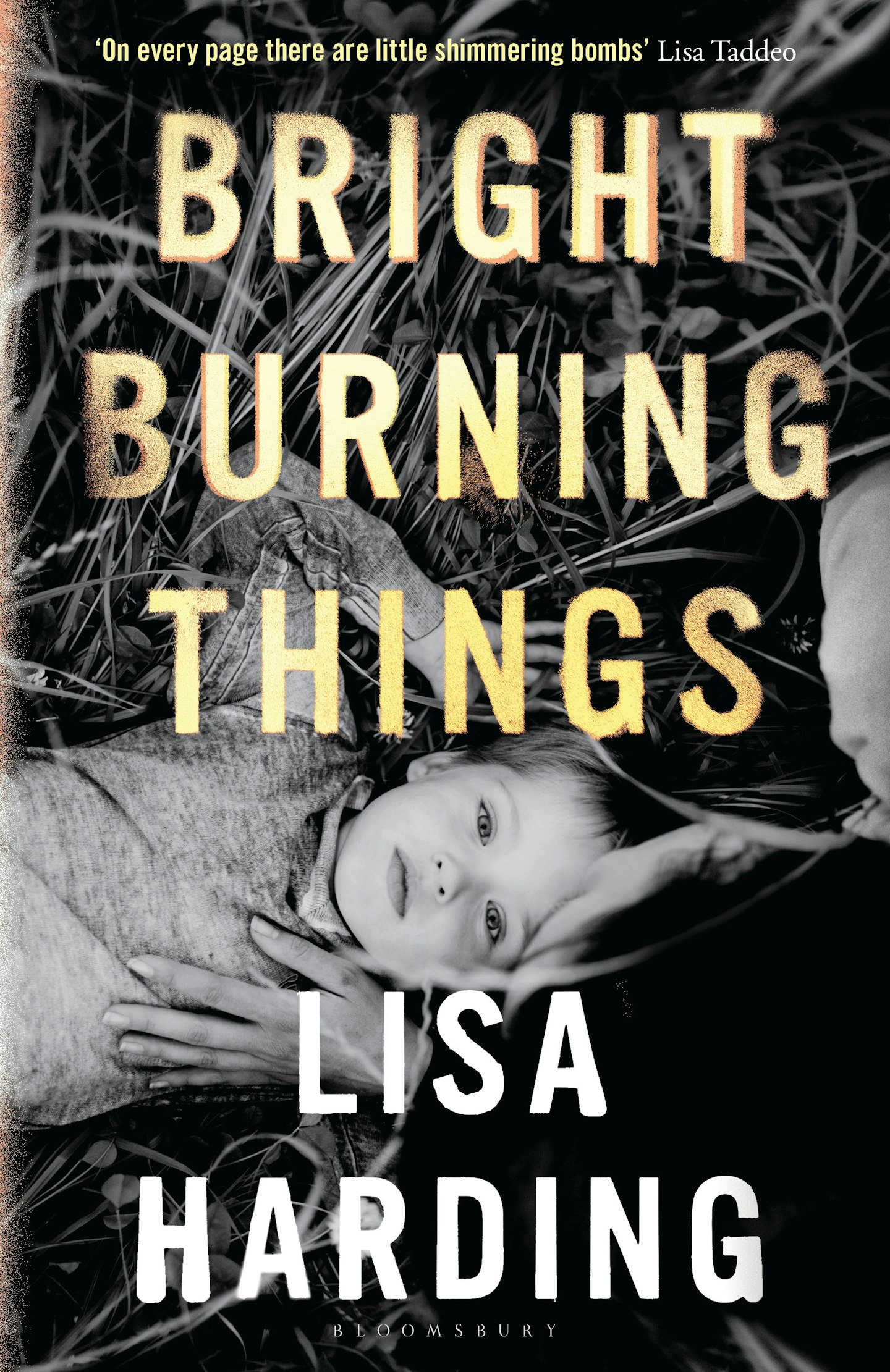Now in my mid-forties, I do not have children. I often wonder at this decision and think it stems from a fear of getting it terribly wrong.
My parents were just 21 when they found themselves pregnant in ‘70s Ireland and forced into wedlock with a person they hardly knew and ultimately were not suited to (they are now divorced). It was a classic ‘mistake’ in a Catholic country where contraception or abortion were not an option. The result was that many children (myself among them) were born shrouded in shame – not through any conscious wrongdoing on the part of the often young, unprepared parents, but because society then offered no choices.
There was such a feeling of frustration and wasted potential in our home – and, as I learned, children soak that up. Growing up (the second child, another ‘mistake’ so soon after the first, eighteen months apart), it was inevitable that I would feel like a burden.
The great motherhood taboo and my novel
Mothers can be jealous of their daughters being afforded all the opportunities they themselves were denied is perhaps still one of the greatest taboos around motherhood.. But the truth is, frustrated ambition and wasted talent can very easily turn to bitterness and rage.
These themes run through my novel, Bright Burning Things, about a single mother who is forced to give up her acting career when she finds herself pregnant with no support. As an actress myself (who stopped acting some years ago), I know only too well the feeling of comedown when the adrenalin - kick, excitement, glamour and attention is removed from your life. It is like coming off a hard drug.
Women can be jealous of their daughters being afforded all the opportunities they themselves were denied
I also wanted to think about the nature of motherhood, thwarted ambition, lack of creative outlet and what that can do to a woman who feels isolated and unsupported. Where to put that whirlwind of emotion? A highly creative, highly charged woman needs some way to channel her intense feelings. What happens to that creative impulse when it is blocked?
And yet my mother’s generation were given Valium and told to ‘get on with it’. In my book, my main character lost her mother very young and barely remembers her. She doesn’t have any memories of being held or cared for. So, how does a mother find that nurturing instinct when she has not experienced it herself?
No one gets it right
It is, of course, reductive and unfair to simply say because a woman has a difficult past that she will inevitably become a ‘damaging’ mother. There are some for whom it is immensely healing to give the love to their offspring they never received themselves.
But what of the women for whom it is impossible to find the inner resources, the maturity, the selflessness necessary to become a good mother? And I don’t mean the rosy-cheeked domestic selfless ‘servants’ to their children (like, say, Louisa Alcott’s idealised mother in Little Women). I mean women at the opposite end of the spectrum who are genuinely damaging to their children?
I recognise that no one gets it fully ‘right’ and that damage is invariably handed down, even when parents do their absolute best, but what of those women who cannot keep themselves in check or who wilfully blame their children for being born in the first place?
Ambushed by feelings
There have been extreme memoirs from Mommie Dearest to A Child called It about overtly abusive mothers, but sometimes it’s the covert messages beneath the façade of ‘normality’, the feeling of shame that transmits itself forcefully. This can happen even where a woman thinks she wants to mother but finds herself ambushed by feelings she can’t control and the child internalises that feeling as being unwanted.
There is another aspect to dark mothering that is difficult to openly acknowledge - and that is a sort of emotional vampirism, where the child is made to feel responsible for every negative feeling and mood their mother is experiencing. A house without boundaries – which is a very common state for alcoholic homes, but also any home where the mother has not learned to parent herself – is a frightening place for any child to grow up in.
I really do believe the old adage that to be a ‘good enough’ mother to a child, one has to first learn to mother oneself
That is why I really do believe the old adage that to be a ‘good enough’ mother to a child, one has to first learn to mother oneself. If a woman can’t soothe her own feelings, what hope for her child to learn how to love and nurture themselves? I believe this intergenerational aspect can really only be stemmed when it is addressed or if the woman actively chooses not mother.
And for those who do find themselves mothers, feeling ill equipped, isolated, floundering – surely more understanding, more honesty can be brought to this conversation, so a woman’s complex feelings aren’t regarded as defective and shameful? Motherhood can be a great challenge for some and until we can address this openly, it will be pushed underground into the area of ‘taboo’ where damage flourishes in the dark.
Lisa Harding is the author of Bright Burning Things, published by Bloomsbury (£14.99)

An extract from the novel, Bright Burning Things by Lisa Harding
There she is, lethal and irresistible, my high-kicking sidekick, and there goes that minx of a song, ‘Impossibly Beautiful’, and there is the sky so high and the light so bright and the sand warm velvet beneath the soles of my bare feet, and here comes the rush, an intense feeling of connection with all that is right and good in this world: my son’s sticky hand in mine as he stares at the sky, my dog trotting alongside, his black coat glinting in the sunlight.
‘Don’t look directly at the sun, sweetheart, it burns your eyes.’
‘But Yaya, you do it too.’
I bend to kiss him on the forehead, over and over as he laughs and pretend-wrestles me away. We look like everyone else as we skip down Sandymount Strand; dogs and kids, a mark of normality. No man, but then that’s not unusual these days. Tommy breaks free and he careens like a drunk – no, that won’t do, push that one away – runs unsteadily towards the surf, the frothy tongues of water that lick the sand.
‘Go, Herbie, go – mind Tommy!’
The dog bounds after him and the two of them frolic at the water’s edge and I feel wave after wave of delicious things, my body vibrating with them, fingertips electric, heat pulsing its way through me.
The fever builds and I find I’m stepping out of my trousers and pulling my T-shirt over my head, dropping them in a puddle at my feet before I sprint towards my boys. My imp is waving, beckoning me into the shimmering water. Hello, Elation, you spangly bitch. I’m in my bra and knickers, but that’s ok because it’s hot and others are in their swimsuits and my underwear could pass for a bikini, so this is fine this is fine this is fine. Herbie is barking wildly. He’d have been put down in a week’s time, they said, if I hadn’t taken him then. Who rescued who? – the thought rises as I am submerged, the cold a tingle, adding to all the other tingles of the day, and my head is under and it’s silky salty down here.
My body feels strong as I push through the surge of water, the sunlight refracted like so many tiny stars, until my lungs are burning, and my heart is thrumming in my throat. I turn on my back and float, staring directly at the concentration of light. When I close my eyes a carnival of colours and shapes explodes behind my lids. Oh, Mr Sunshine’s working his magic alright! I crane my neck to see my boys, but there’s a stranger, bending down to talk to Tommy. A distorted version of the happy song of moments before burrows and grooves. Now the stranger is picking him up. Not ok. Strike at the sea with sharp, staccato strokes, fluid sloshing in my ears and mouth. As soon as my feet hit the shallows I sprint, pushing the body of water away as if it were mere air.
‘It’s ok, it’s ok, sweetheart, I’m here now, I’m here,’ I say, or I think I say, my voice warped and bouncing in my ears as I open my arms to gather him up.
‘You really shouldn’t leave a little one alone like that,’ the stranger says, an old woman who’s cradling Tommy too close.
‘Here,’ and she reaches into her bag to hand me a towel. ‘Where are your Clothes?’
I don’t like the aura of authority about this woman who still hasn’t let go of my son. Start to shake with anger and cold, purple patches breaking out on my arms and legs.
‘It’s ok, Herbie,’ I say as I pat the dog on the head.
‘Oh, that poor creature belongs to you? I thought it was a stray.’
The woman’s voice sounds like a swarm of something biting and black, with wings. Static builds up inside my head, so I have to shake it.
‘Are you alright, dear?’ falls out of the woman’s mouth, and it Stings.
‘Jesus, I’m fine, perfectly fucking fine. Now just give me back my boy and we’ll be out of your way.’
The woman’s grip on Tommy tightens. ‘Perhaps you should dry yourself off first?’
Shaking with something else now and it’s rocking me deep inside. My voice is huge and swallowed and I’m scared of what might happen if I release it. Breathe: in, out, in, out. The woman sucks in her cheeks, biting down on them, making her appear cadaverous, as if she might spirit Tommy away to another dimension.
‘Is there someone I can call?’ Her voice a hag’s voice.
I knock the phone out of her hand and grab my son from her arms, which are stick-thin with loose swathes of skin. Feel repulsed by this old woman: her proximity, her bossy intrusion into our happy, happy world.
The woman calmly bends to pick up her phone, which makes my reaction seem all the more extreme. Even when I can see myself like this from the outside, I still can’t stop the tornado whipping up through me: a ‘child thief ’, a ‘kiddy twiddler’, a ‘dirty old bag’, ‘witch/ bitch/crone/cunt’ rip out of me as I run, a bawling Tommy clasped tight to my sopping bra, Herbie in step. Sprint to the car without stopping to pick my clothes up off the sand; people are staring – let them stare, they have nothing better to do. I throw Tommy in the back with Herbie – whose hair on his back is standing up, his Sid Vicious act – before I turn the key, which I left on the front right hand tyre (a trick Howard taught me, as I was forever losing my keys – good for something, the prick). Rev the engine and move away from the packed car park on to the congested road, my bare feet slipping on the pedals.
READ MORE::a[How Fiction Became Obsessed With The Dark Side Of Motherhood]{href='https://graziadaily.co.uk/life/books/mum-noir-domestic-psychological-thriller/' target='_blank' rel='noopener noreferrer'}
READ MORE: Can We Stop Being Martyrs About Motherhood Please?
